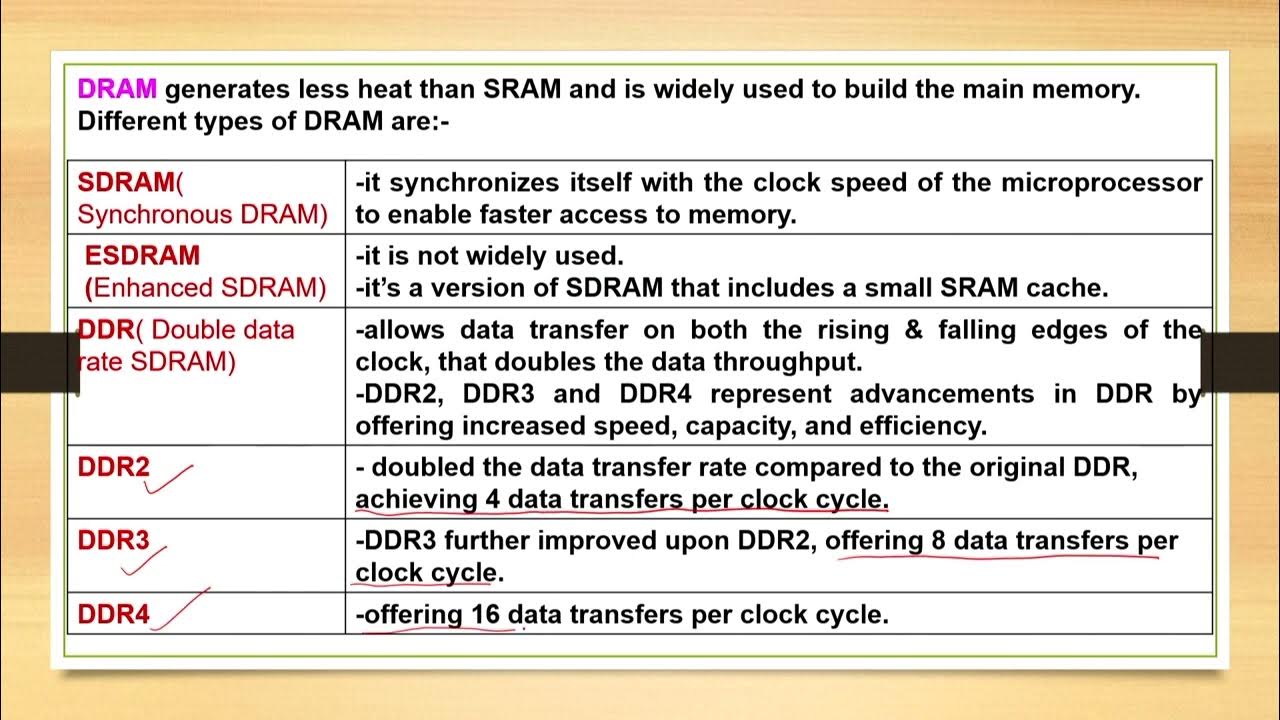Psych9B. Psychology Fundamentals. Lecture 1:
Summary
TLDRThe lecture explores the complexities of human memory, emphasizing that it is not like computer storage. Memory is malleable, prone to errors, and constantly influenced by knowledge, expectations, and the reconstructive process during retrieval. This can lead to both useful and problematic outcomes, such as false memories, which pose issues in areas like eyewitness testimony. The lecture also covers different types of memory (short-term, long-term, implicit, and explicit) and introduces fascinating topics like extreme autobiographical memory. Demonstrations highlight how memory can influence perception, including how we hear and interpret speech.
Takeaways
- 🧠 Human memory is not like computer memory; it is malleable and not always accurate.
- 🕳️ Much of what we encounter doesn't get stored in memory at all.
- 🔄 Stored memories are not static; they change over time and are influenced by our knowledge and expectations.
- 🔍 Retrieving information from memory involves an active, reconstructive process.
- 🚫 There are often gaps in memory, which we tend to fill in as we recall information.
- 📈 The reconstructive process can help retrieve more information but can also lead to false memories.
- 👁️ Memory plays a crucial role in eyewitness testimonies, which can sometimes be inaccurate.
- 📚 We'll discuss different types of memory stores, including short-term, working, long-term, implicit, and explicit memory.
- 🌟 UCI has discovered individuals with extreme autobiographical memory, who remember personal events very well.
- 👂 Memory influences perception; demonstrated by how memory affects hearing, even turning random whistles into recognizable speech.
Q & A
How does human memory differ from computer memory?
-Human memory is malleable and doesn't store information passively like a computer. It is constantly changing over time and is influenced by our knowledge and expectations.
What is the reconstructive process in memory retrieval?
-The reconstructive process is an active process where information is not retrieved perfectly but is filled in over time, leading to both the retrieval of more information and potential memory errors.
Why can people sometimes falsely believe they remember something that didn't happen?
-People can falsely believe they remember something due to the reconstructive nature of memory, which can lead to filling in gaps with information that aligns with their knowledge and expectations, even if it's incorrect.
What are the different types of memory stores mentioned in the script?
-The script mentions short-term memory, working memory, long-term memory, implicit memory, and explicit memory.
What is the difference between implicit and explicit memory?
-Implicit memory is memory you're not aware of but still have, like skills or habits. Explicit memory is memory you are consciously aware of, such as facts or events.
What is extreme autobiographical memory and how was it discovered at UCI?
-Extreme autobiographical memory is the ability to have an extremely good memory for personal events and experiences. It was discovered at UCI in people who could remember detailed personal events but not necessarily educational material.
How does memory influence our cognition and decision-making?
-Memory influences our knowledge and expectations, which in turn affect all other aspects of cognition, including decision-making and problem-solving.
What is sine-wave speech and how was it used in the demonstration?
-Sine-wave speech is a form of speech synthesis where three sine wave signals' frequencies are varied over time to match the frequency characteristics of the original message. It was used to demonstrate how memory can influence perception and hearing.
What is top-down perception and how does it relate to memory?
-Top-down perception is the influence of higher-level cognitive processes, such as memory, on lower-level sensory processing. It relates to memory as it shows how memory can affect how we perceive and interpret sensory information.
What is the significance of the sine-wave speech demonstration in understanding memory's influence on perception?
-The sine-wave speech demonstration shows that memory can significantly influence our perception, as participants who heard the speech with context could not perceive the original random whistles due to their memory of the interpreted words.
What will be the topic of the next lecture according to the script?
-The next lecture will be on memory gaps and memory errors.
Outlines

Cette section est réservée aux utilisateurs payants. Améliorez votre compte pour accéder à cette section.
Améliorer maintenantMindmap

Cette section est réservée aux utilisateurs payants. Améliorez votre compte pour accéder à cette section.
Améliorer maintenantKeywords

Cette section est réservée aux utilisateurs payants. Améliorez votre compte pour accéder à cette section.
Améliorer maintenantHighlights

Cette section est réservée aux utilisateurs payants. Améliorez votre compte pour accéder à cette section.
Améliorer maintenantTranscripts

Cette section est réservée aux utilisateurs payants. Améliorez votre compte pour accéder à cette section.
Améliorer maintenant5.0 / 5 (0 votes)






